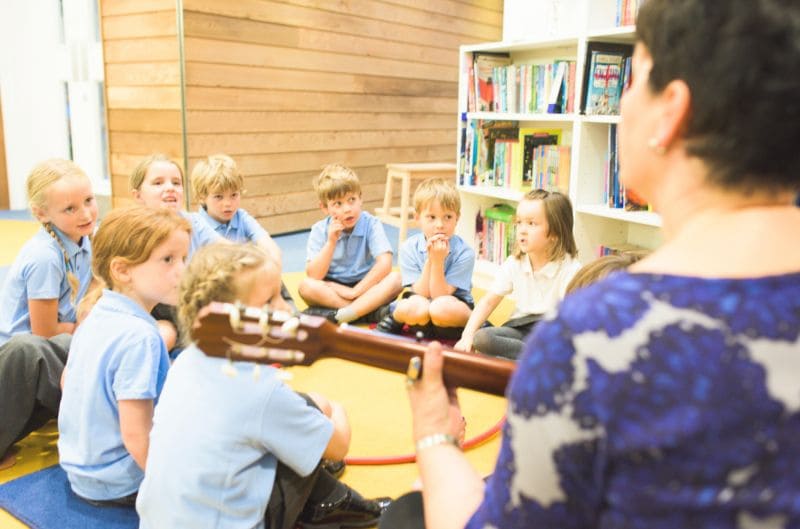
10 Benefits Of Music Education In Early Childhood That Will Make You Go Wow
Author: Austin Stanfel
Many parents are hesitant to let their kids choose music as an optional or recreational subject. Parents are concerned their children might not be able to give due attention to their studies if they opt for such an activity—however, music. Music is a skill and should be treated like one.
If you are stuck with the same thoughts, hold on; this blog post has your back now. In today’s blog post, we will discuss why you should let your kids learn music and how it can help their growth and development.
1.Music Brings Confidence
If a kid can sing or play a musical instrument in front of a crowd, he can probably do anything. So learning such a skill will help r your child if he’s shy or introverted. He may start solo bathroom singing, but he’ll eventually reach the stage where a huge crowd will be waiting to admire him. Won’t that be a great feeling?
2.Music And Motor Language
Language and music share many standard features, so learning music in early childhood will help your kids understand language and words better. Some parts of the brain that process language also process music, so motor language is greatly affected by music learning. Training music alters the brain’s capability to process words, says Nadine Gaab, a former Stanford postdoctoral fellow.
3.Music Provides A Sense Of Intimacy
Perhaps you remember the lullaby lyrics that your mother used to sing for you. It is because music connects souls and makes you close to the person you love. One study showed that kids are likelier to hear lullabies twice as long as they listen to an adult speaking. So music supports such intimacy in relationships.
4.Music Males Regular Tasks More Appealing
What’s so special about washing the dishes or doing the laundry anyway? But think of it like this, you’re doing your house chores and listening to your favorite music while your headphones are plugged in; the task becomes more enjoyable. Music also removes your boredom and fatigue so you can concentrate on your tasks for longer and in a better way.
5.What Studies Say
Learning how to play musical instruments helped children understand mathematical problems better and increased SAT scores, says NAMM Foundation (National Association of Music Merchants). Another study at the University of Southern California’s Brain and Creativity Institute in 2016 revealed that improved cognitive development was seen in kids who had some sort of musical experience in childhood.
6.Improved Coordination
Learning music will help your kids’ bodies and minds adapt and work together, just as our hands and minds work together when playing musical instruments. You know when our hands sync with the beats on the drum or guitar when in a concert? That’s how music teaches your kids coordination and balance.
7.Enrich Vocabulary
Music allows your kids to learn new and exciting words. Your child gets to build a better vocabulary by listening to music. Music has many informal expressions that we don’t get to learn in formal educational institutions.
Studies have shown that kids who grow up listening to different languages are more likely to have better linguistic sensitivity when they learn or come across these languages later in their life. So better syntax assimilation and vast vocabulary are the benefits of music education in the early childhood years.
8.Music Helps With Memorisation
Many scientists believe singing new words is easier to remember them. Remember when we were kids? We used to sing the alphabet song, and we learned all 26 alphabets. That’s how music makes memorization easy and fun. It’s funny how we can memorize tens of songs for years but forget what we learned last week!
9.Bring Out Your Kids’ Creativity
Music helps your kids to polish their creative side and bring out a better version of themselves. Music has limitless opportunities, and your kids get to learn so much. They can try new and innovative ideas, work individually or in groups, compose new sounds, share ideas, and all one can imagine. Your kids also learn to solve their problems independently just as they figure out the notes, highs, and lows.
10.Music Brings Us Joy
All other benefits apart but music makes one happy. It is a sheer joy for the mind and soul, so why not let your kids enjoy pleasurable moments after a tiring day? Music makes our special days even more worthwhile and enlightens us when we are gloomy, so it is a yes for music either way. The tone, the lyrics, the pitch, everything leaves a soothing effect on the mind and soul of the person listening, so yes, music is a sheer joy!
What Else?
If the above points were not enough to convince you, here’s a list of the benefits music education in early life provides to your kids. We hope this helps.
- Overall literacy score
- Emotional well being
- Socialization powers
- Character building
- Motor improvement
- Intellectual development
- Cognitive development
- Improved behavioral responses
- Easy language learning
The Bottomline
So, here’s the catch. Music is a part of our life that we cannot and should not avoid. There are many ways you can help your child learn what he loves, such as music schools, creative music games, participation in contests, and all. And your kids have the right to pursue music if they want to. So, let them make their choice and support them anyway because, in the end, all that matters is what we love to do.

